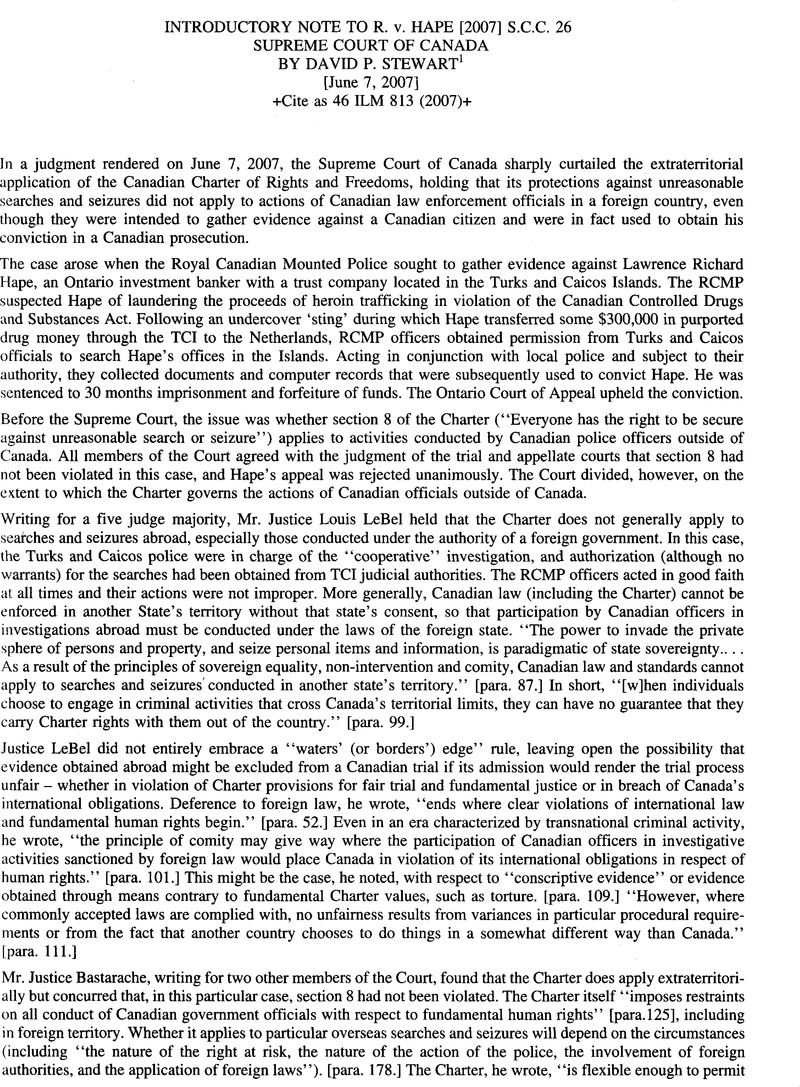No CrossRef data available.
Published online by Cambridge University Press: 27 February 2017

This text was reproduced and reformatted from the text appearing at the website of the Supreme Court of Canada <http://scc.lexum.umontreal.ca/en/2007/2007scc26/2007scc26.html> (visited July 23, 2007).
1 The views expressed herein are those of the author and not any institution with which he is affiliated.
2 See, for example, Reid v. Covert, 354 U.S. 1 (1957); United States v. Behety, 32 R3d 503 (11th Cir. 1994); United States v. Barona, 56 F.3d 1087 (9th Cir. 1995). Generally, the requirements of the Fourth Amendment do not apply to foreign searches by foreign officials. In circumstances comparable to those in Hape, however, a U.S. court might conclude that the TCI authorities were acting as “agents” of U.S. authorities, conducting the searches and seizures solely in the investigative interests of U.S. law enforcement, and their actions might thus be subject to the Fourth Amendment. Cf. United States v. Maturo, 982 F.2d 57 (2nd Cir. 1992).
* This text was reproduced and reformatted from the text appearing at the website of the Supreme Court of Canada <http://scc.lexum.umontreal.ca/en/2007/2007scc26/2007scc26.html> (visited July 23, 2007).